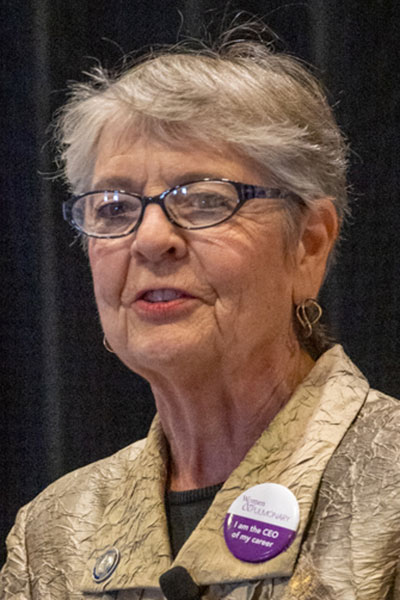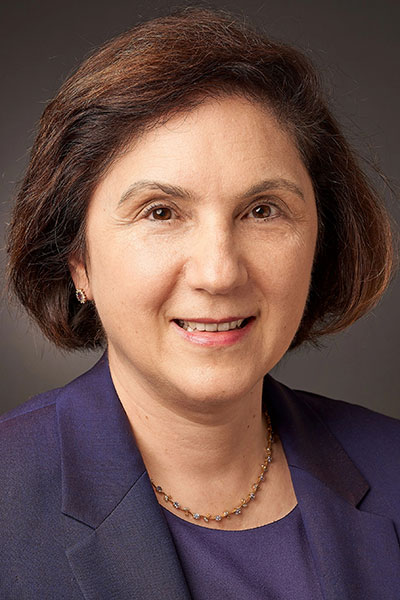
Young physicians tend to have goals laid out for them during their education: pass the next test to get into college, to get into medical school, to get into residency. There’s rarely time to think about being the decision-makers of their careers, said Leadership and Career Development Coach, Janet Bickel, at this year’s Women & Pulmonary Luncheon during CHEST 2022.
On top of that, women often face more obstacles in their careers than their male counterparts. For instance, they often must work harder to gain and keep the respect of the medical staff; at the same time—just as they’ve been socialized to—women tend to underestimate their strengths and downplay their expertise.
During the presentation, “You Are the CEO of Your Own Career,” on Monday, October 17, Bickel shared several ideas to help women internalize the evidence of their strength. One of those tactics was shameless self-promotion.
“Host annual or quarterly shameless self-promotion luncheons to get practice drawing attention to your work and talk confidently about your goals,” Bickel said.

Don’t assume your chief or boss knows exactly what you’re doing all the time, added Carolyn D’Ambrosio, MD, MS, FCCP, Chair of the Women & Pulmonary Work Group for the CHEST Foundation, who helped organize continuing conversations at CHEST 2022 following the luncheon.
“Bring your work forward: Send an email of what you’re doing, or let them know you just got a chapter published. Sometimes it’s better to get rid of ambiguity,” said Dr. D’Ambrosio, who is also an associate professor of medicine and vice chief for fellowship training in the section of pulmonary and critical care medicine at Yale University School of Medicine.
The same goes for earning respect among male colleagues, she said. For example, oftentimes, males are referred to as ‘doctors,’ but women are called by their first names.
“Politely but firmly reinforce that if you call other colleagues ‘doctor,’ you should also call me ‘doctor,’” Dr. D’Ambrosio said.
However, that can be a fine art. “You have to find a communication style that works for you that’s relationship-focused and goal-focused,” Bickel said.
She recommends practicing before important conversations and negotiations.
Women can also find allies to support them—and their ideas—in meetings, so they get credit when credit is due, Dr. D’Ambrosio said. For example, if a male counterpart repeats the same thing you said a few minutes ago, it’s important that someone pipe up and say: “Oh yes, Dr. D’Ambrosio brought that up a few minutes ago.”
Finding role models who, from your perspective, are good at communicating in an effective style, can also help refine your own style. That’s why programs like these luncheons are so important, Bickel said, because women get to introduce themselves to other women they admire in the field.
But it’s not just up to the women, she said. It’s important for men to come to these sessions and learn how to better support their female colleagues, as well.
“Women are not actively being prevented from achieving their potential; it’s passive,” Bickel said. “That’s why their well-intentioned male colleagues don’t even notice they’re struggling.”
The Women & Pulmonary Luncheon was sponsored by United Therapeutics.
Join us at CHEST 2025
Save the date for the next Annual Meeting, October 19 to 22, 2025, in Chicago. CHEST 2025 will explore the latest advancements in pulmonary, critical care, and sleep medicine, with a focus on innovation and the future, just as the city itself embodies progress and reinvention.





